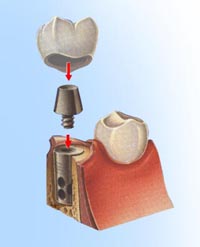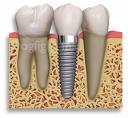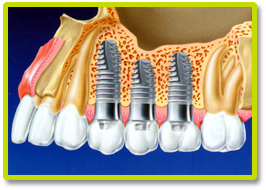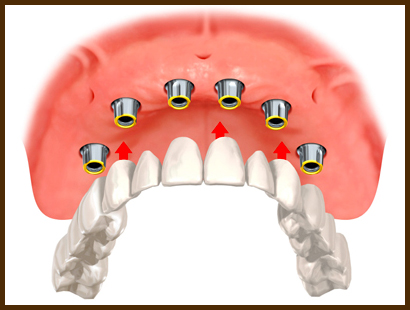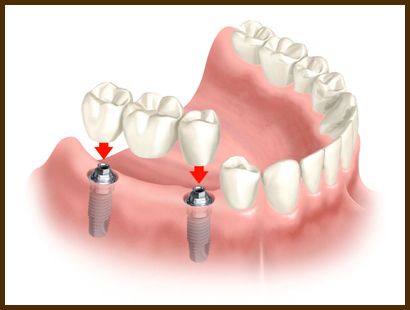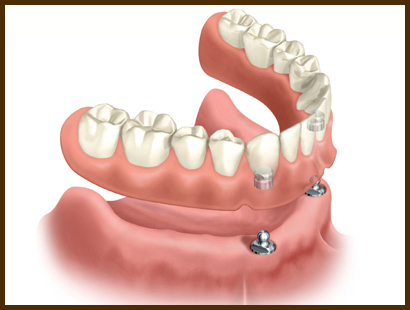Implant Dentistry
|
Dr. Mozer is one of only a few dentists nationwide with a Masters of Science Degree (MS) in Oral Implantology and has been honored with the credentials of both Fellow and Diplomate of the International Congress of Oral Implantologists. Dr. Mozer is involved in the exciting area of conservative 3D Guided Dental Implant Surgery that utilizes 3D imaging to guide the implant into the best position. This minimally invasive approach allows for pre-surgical planning of the optimal implant position through small pinholes in the gum tissue. With the use of an innovative technique and state of the art treatment called Immediate Function Implantology, Dr. Mozer can remove unrestorable teeth, and place Dental Implants on the same day. As a result, the patient can leave the office with a cosmetically pleasing restoration that is supported by the newly placed Dental Implants. Historically, a bridge was used to replace a single missing tooth. Bridges use teeth on either side of your missing tooth to provide support and are reduced or cut down in order to have the bridge in place. Dental Implants provide a more advanced replacement for the missing tooth and preserves the adjacent teeth as well.
|
Single Implant Multiple Implants
|
Dr. Mozer is an Associate Member of the American Academy of Implant Dentistry and keeps his skills current through continuing education in implantology. A dental implant is an option to replace a missing tooth. In this procedure, a small titanium implant is surgically implanted into the bone. The bone grows around it forming a tight connection. Once the implant is firmly healed in the mouth, Dr. Mozer will then attach the replacement tooth or crown onto the top of the implant. New advances in implantology can allow for immediate crown placement on an implant. This permanent solution has the advantages over bridge work that adjacent teeth do not need to be filed down or adjusted and it does not stress the surrounding teeth for support. Implants can replace one tooth or many teeth. Multiple single implants with crowns can most closely mimic one's natural teeth, however, several implants with an implant-supported bridge can bridge the space of multiple missing teeth effectively.
Implant Bridge Replacing All Teeth Implant Bridge Implants Securing a Denture Implants are also an excellent option to stabilize a loose denture for a more permanent and secure attachment. A special attachment is placed in the underside of the full denture or partial denture so that it can snap onto the implant, stabilizing the denture. |
Key Attributes of Implants
|
Adjacent teeth remain intact: No grinding or reduction required of the teeth on either side of the missing tooth space Titanium Implant: Titanium is a very strong material that is biocompatible and naturally accepted by the body Bone Integrity is Preserved: Bone underlying a bridge's replacement tooth is no longer stimulated by chewing and is often resorbed by the body, creating a growing gap between the replacement tooth and the gums. Dental Implants preserve and restore direct stimulation to the underlying bone. |
Dental Implant FAQ's
|
What are Dental Implants? Dental Implants are substitutes for the roots of missing teeth. They act as an anchor for a replacement tooth or crown or a set of replacement teeth. Am I Candidate for Implants? Implant patients are of all ages and Implants may be the right choice for anyone missing one or more teeth due to injury, disease or decay. They are especially practical for patients who can no longer wear removable dentures. Dr. Mozer can determine if you are a candidate for Dental Implants after a careful evaluation of your dental and medical history. Do I Have Enough Bone for Implants? The more surface area contact between the Implant and bone, the more support and stability for the Implant. A clinical evaluation and a 3D image will provide the necessary information to make this determination. Even if there is not enough room for the larger traditional implants, bone grafting can be used to enhance the quality of the existing bone. Mini-implants can be used in a similar way to replace missing teeth or stabilize a denture. Mini-implants require much less bone for the implant to be successful. Dental Implants for Tooth Replacement Your teeth were designed to last a lifetime, but for many different reasons this may not happen. Replacing missing teeth is important to your general health and to the health of your other teeth. Not only do you lose chewing ability when a tooth is lost, but unreplaced teeth causes extra biting pressure to be placed on remaining teeth. This additional pressure, over time, can cause other teeth to fracture and create subsequent problems. Replacement of lost teeth with Implants has been used for treating missing teeth for more than 50 years and is recognized as an effective and long-lasting treatment choice. Treatment with implants is considered more predictable and longer lasting than traditional bridgework. |
